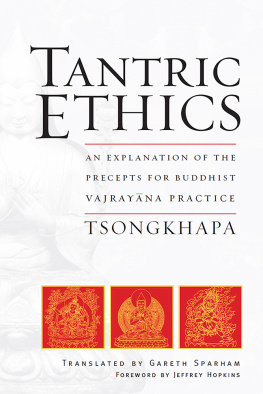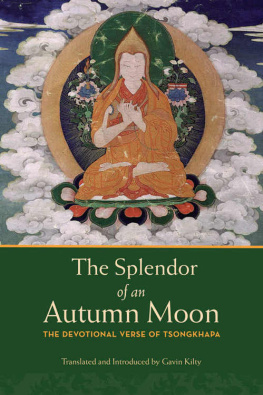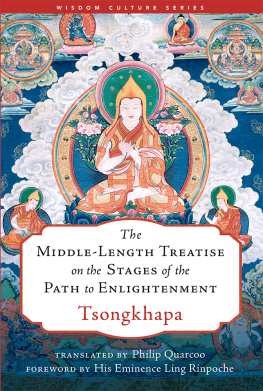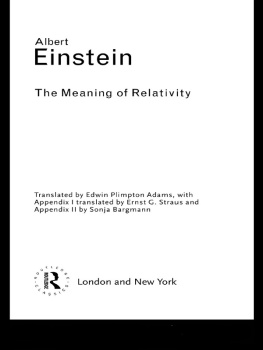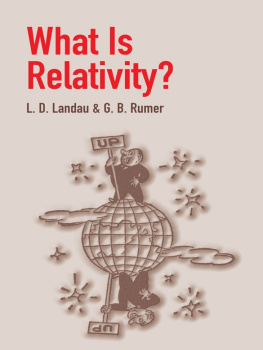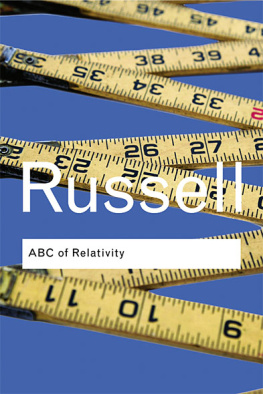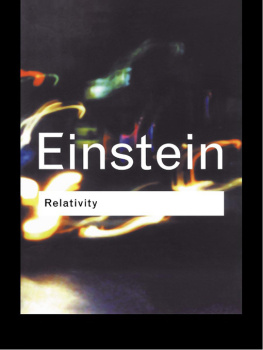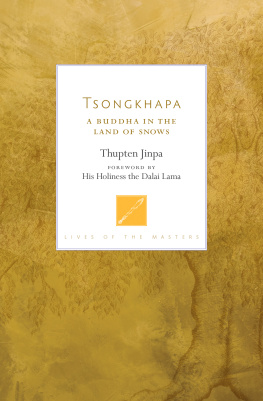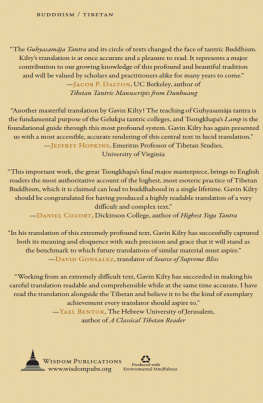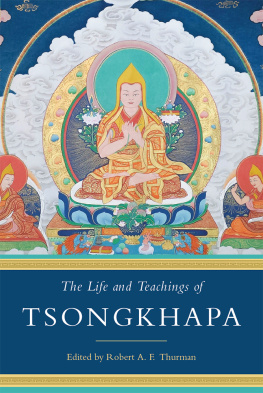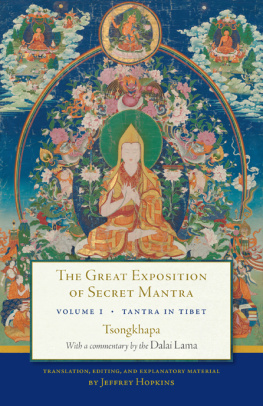Je Tsongkhapa - Tsongkhapas Praise for Dependent Relativity
Here you can read online Je Tsongkhapa - Tsongkhapas Praise for Dependent Relativity full text of the book (entire story) in english for free. Download pdf and epub, get meaning, cover and reviews about this ebook. year: 2011, publisher: Wisdom Publications, genre: Religion. Description of the work, (preface) as well as reviews are available. Best literature library LitArk.com created for fans of good reading and offers a wide selection of genres:
Romance novel
Science fiction
Adventure
Detective
Science
History
Home and family
Prose
Art
Politics
Computer
Non-fiction
Religion
Business
Children
Humor
Choose a favorite category and find really read worthwhile books. Enjoy immersion in the world of imagination, feel the emotions of the characters or learn something new for yourself, make an fascinating discovery.

- Book:Tsongkhapas Praise for Dependent Relativity
- Author:
- Publisher:Wisdom Publications
- Genre:
- Year:2011
- Rating:5 / 5
- Favourites:Add to favourites
- Your mark:
- 100
- 1
- 2
- 3
- 4
- 5
Tsongkhapas Praise for Dependent Relativity: summary, description and annotation
We offer to read an annotation, description, summary or preface (depends on what the author of the book "Tsongkhapas Praise for Dependent Relativity" wrote himself). If you haven't found the necessary information about the book — write in the comments, we will try to find it.
Je Tsongkhapa: author's other books
Who wrote Tsongkhapas Praise for Dependent Relativity? Find out the surname, the name of the author of the book and a list of all author's works by series.
Tsongkhapas Praise for Dependent Relativity — read online for free the complete book (whole text) full work
Below is the text of the book, divided by pages. System saving the place of the last page read, allows you to conveniently read the book "Tsongkhapas Praise for Dependent Relativity" online for free, without having to search again every time where you left off. Put a bookmark, and you can go to the page where you finished reading at any time.
Font size:
Interval:
Bookmark:
Tsongkhapas
Praise for Dependent Relativity
Praise for Dependent Relativity

Lobsang Gyatso
and Graham Woodhouse

WISDOM PUBLICATIONS BOSTON
Wisdom Publications
199 Elm Street
Somerville, MA 02214 USA
www.wisdompubs.org
2011 Lobsang Gyatso and Graham Woodhouse
All rights reserved.
No part of this book may be reproduced in any form or by any means, electronic or mechanical, including photography, recording, or by any information storage and retrieval system or technologies now known or later developed, without permission in writing from the publisher.
Library of Congress Cataloging-in-Publication Data
Blo-bza-rgya-mtsho, Phu-kha Dge-bes.
Tsongkhapas Praise for dependent relativity / Losang Gyatso and Graham Woodhouse.
p. cm.
Includes translations from Tibetan.
ISBN 0-86171-264-1 (pbk. : alk. paper)
1. Tso-kha-pa Blo-bza-grags-pa, 13571419. Rten brel bstod pa. 2. nyat. I. Woodhouse, Graham, 1952 II. Tso-kha-pa Blo-bza-grags-pa, 13571419. Rten brel bstod pa. English. III.
Title.
BQ4275.B58 2011
294.385dc23
2011030584
ISBN 978-0-86171-264-9
eBook ISBN 978-0-86171-721-7
15 14 13 12 11
5 4 3 2 1
Cover design by TLJE. Interior design by Gopa&Ted2, Inc. Set in Sabon LT Std 10.25/14.
Cover photo: Solway Beach, Cumbria, UK. Reproduced with the kind permission of the photographer, Ally McGurk: www.flickr.com/allybeag.
Wisdom Publications books are printed on acid-free paper and meet the guidelines for permanence and durability of the Committee on Production Guidelines for Book Longevity of the Council on Library Resources.
 This book was produced with environmental mindfulness. We have elected to print this title on 30% PCW recycled paper. As a result, we have saved the following resources: 8 trees, 4 million BTUs of energy, 824 lbs. of greenhouse gases, 3,716 gallons of water, and 235 lbs. of solid waste. For more information, please visit our website, www.wisdompubs.org. This paper is also FSC certified. For more information, please visit www.fscus.org. Environmental impact estimates were made using the Environmental Paper Network Paper Calculator. For more information visit www.papercalculator.org.
This book was produced with environmental mindfulness. We have elected to print this title on 30% PCW recycled paper. As a result, we have saved the following resources: 8 trees, 4 million BTUs of energy, 824 lbs. of greenhouse gases, 3,716 gallons of water, and 235 lbs. of solid waste. For more information, please visit our website, www.wisdompubs.org. This paper is also FSC certified. For more information, please visit www.fscus.org. Environmental impact estimates were made using the Environmental Paper Network Paper Calculator. For more information visit www.papercalculator.org.
C OMMENTARY
T HE PUBLISHER gratefully acknowledges the generous help of the Hershey Family Foundation in sponsoring the publication of this book.
T SONGKHAPA , the author of Praise for Dependent Relativity, is renowned as one of the greatest scholar-saints that Tibet has ever produced. He composed these verses on the very morning that he abandoned perplexity and attained the final view. In them, he identifies the essence of this view as the harmony of dependent relativity and emptiness. He would later delineate it with fine precision and logical coherence in five great, longer, prose works that are a significant component, if not the core, of his enduring legacy.
Tsongkhapa was born in 1357 in the Tsongkha district of Amdo in northeast Tibet, where Kumbum Monastery now stands. From childhood, his life was wholly devoted to the study and contemplation of Buddhas words, and early animated by the bodhisattva ideal, he strove only for the fully evolved stage of buddhahood, with the vast motivation of helping all beings find freedom. He began his monastic education at the age of three, and he left his home province at the age of sixteen to seek teachings from the masters of central Tibet in the peripatetic style of the times, not restricting himself to any one school or tradition but engaging with many. It was not long before he was called on to teach himself.
His skill in debating and teaching soon brought him fame, but eventually, in 1392, the wisdom-deity Manjushri, with whom Tsongkhapa had established a direct visionary connection, advised him to withdraw from extensive teaching and spend more time in contemplation and retreat.
Tsongkhapas long years of concentrated study, dedication to the teachings, and arduous practice culminated one night in 1398 when he dreamed that he was present at a discussion of the intricacies of the ultimate view between the most illustrious Buddhist masters of the past. One of them, Buddhapalita, whose commentary Tsongkhapa had been reading the previous evening, approached and blessed him by touching him on the head with a text. Thereupon Tsongkhapa awoke and turned again to Buddhapalitas commentary. As dawn was breaking, he finally generated the blissful, sun-like wisdom that knows the ultimate nature of things and will dispel forever the darkness of ignorance. He composed Praise for Dependent Relativity on the same morning, directly following his experience.
Between 1398 and his death, Tsongkhapa devoted his energies to the advancement of Buddhism in Tibet, teaching, composing texts, and founding monasteries. Many of these monasteries, such as the renowned Ganden Monastery, where Tsongkhapa passed away in 1419, have flourished up to the present day as great centers of learning and debate, though now reestablished in exile in India.
One of the remarkable events surrounding Tsongkhapas life is attested to by two French Christian priests of the Lazarist sect, Huc and Gabet, whose evangelical zeal brought them to Tsongkhapas birthplace in 1845, a time when very few Westerners had penetrated that isolated region on the eastern edge of the Tibetan plateau. From the earth where the afterbirth expelled from the womb of Tsongkhapas mother was buried, a tree sprang up with Tibetan letters inscribed on its leaves and bark. The two French missionaries dreamed of preaching the Christian gospel in Lhasa itself. While on their long and adventurous journey from China through Mongolia (Tartary) to the Tibetan capital, they stopped to recuperate for a few weeks at Kumbum Monastery. By way of preface to their description of the tree that they had already heard so much about on their travels, their antipathy to the Buddhist religion is worth noticing. In Mongolia, Huc confides:
Sad and lamentable is it to see these unhappy victims of error... ; ones heart is pierced with grief, and ones soul impressed with yearning for the day when these poor Tartars
Not long after arriving Kumbum, Huc and Gabet passed through the gate of the wall enclosing the renowned tree:
Our eyes were first directed with earnest curiosity to the leaves, and we were filled with an absolute consternation of astonishment at finding that, in point of fact, there were upon each of the leaves well-formed Thibetian characters, all of a green color, some darker, some lighter than the leaf itself. Our first impression was a suspicion of fraud on the part of the Lamas; but, after a minute examination of every detail, we could not discover the least deception. The characters all appeared to us portions of the leaf itself, equally with its veins and nerves; the position was not the same in all; in one leaf they would be at the top of the leaf; in another, in the middle; in a third, at the base, or at the side; the younger leaves represented the characters only in a partial state of formation. The bark of the tree and its branches, which resemble that of the plane tree, are also covered with these characters. When you remove a piece of old bark, the young bark under it exhibits the indistinct outlines of characters in a germinating state, and, what is very singular, these new characters are not infrequently different from those which they replace. We examined everything with the closest attention, in order to detect some trace of trickery, but we could discern nothing of the sort, and the perspiration absolutely trickled down our faces under the influence of the sensations which this most amazing spectacle created. More profound intellects than ours may, perhaps, be able to supply a satisfactory explanation of the mysteries of his singular tree; but as to us, we altogether give it up. Our readers possibly may smile at our ignorance; but we care not, so that the sincerity and truth of our statement be not suspected.
Next pageFont size:
Interval:
Bookmark:
Similar books «Tsongkhapas Praise for Dependent Relativity»
Look at similar books to Tsongkhapas Praise for Dependent Relativity. We have selected literature similar in name and meaning in the hope of providing readers with more options to find new, interesting, not yet read works.
Discussion, reviews of the book Tsongkhapas Praise for Dependent Relativity and just readers' own opinions. Leave your comments, write what you think about the work, its meaning or the main characters. Specify what exactly you liked and what you didn't like, and why you think so.

